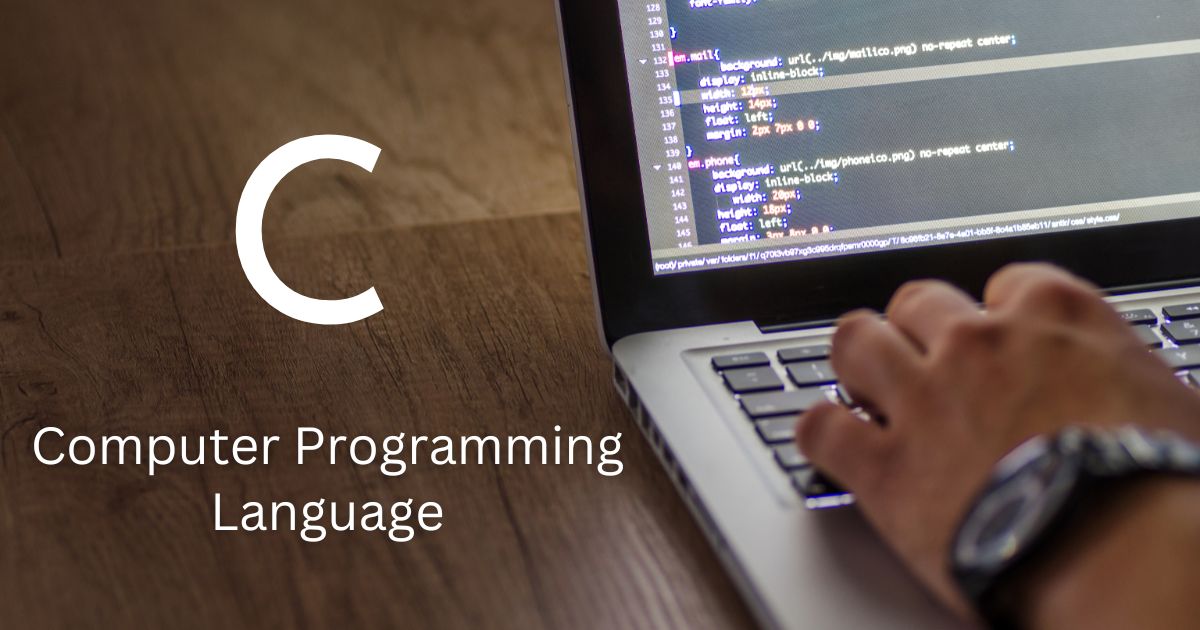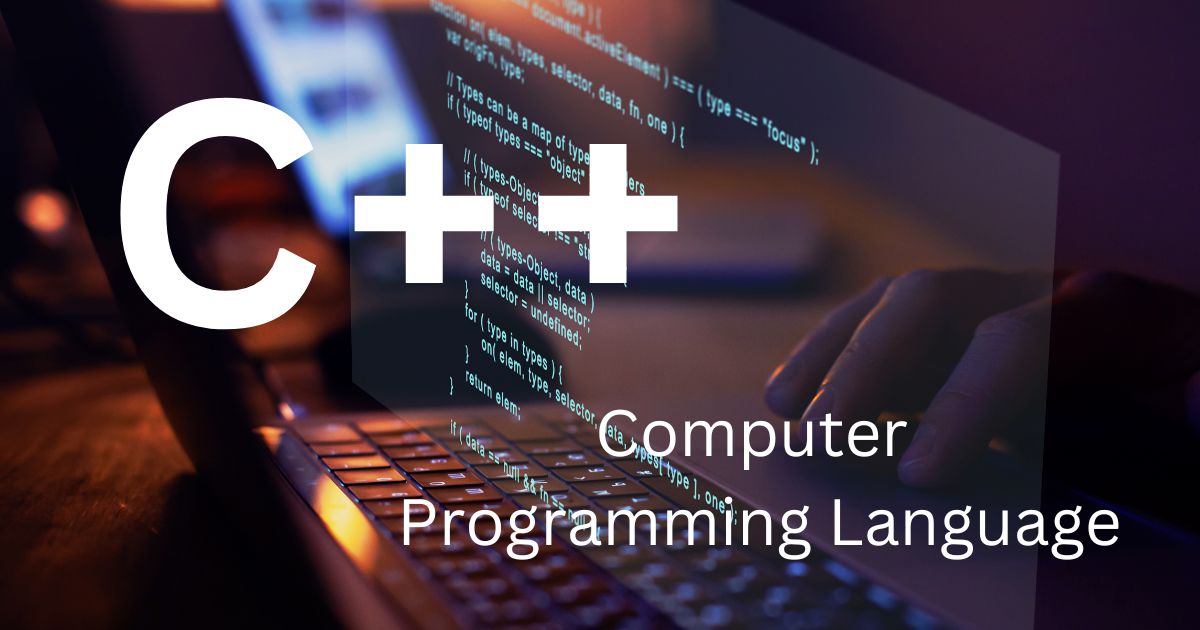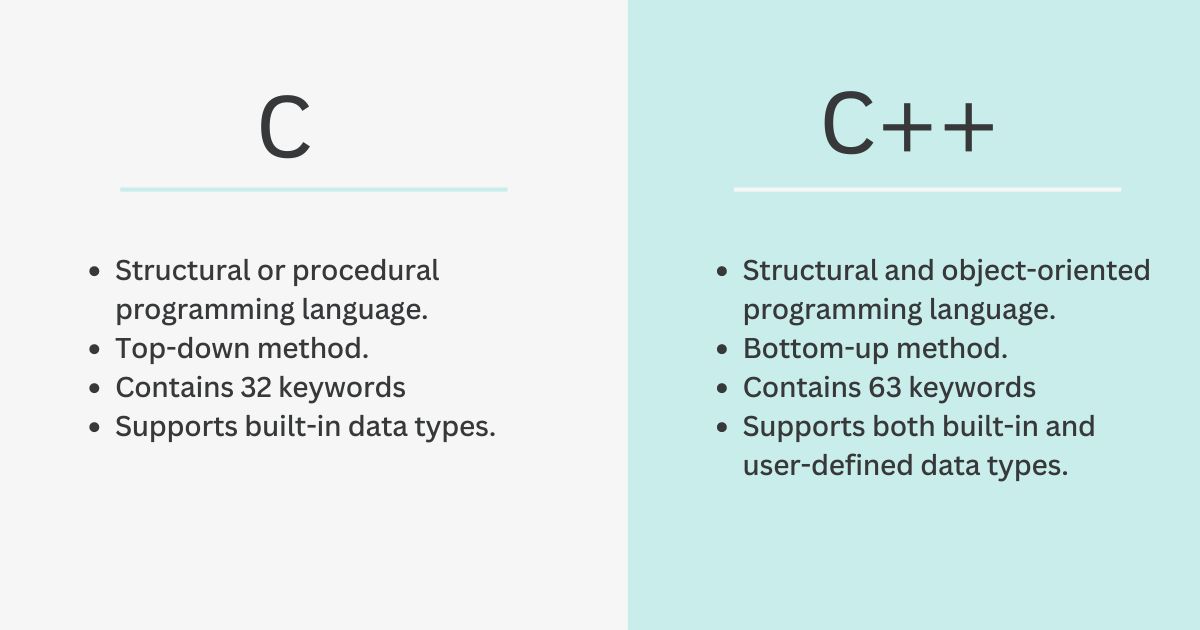C vs C++ – What's The Difference? Which Language is Better?
When starting to learn programming, we may encounter the risk of confusion between the two programming languages C and C++. Many people often combine them into a concept called C/C++, which can lead to the misunderstanding that these two languages are completely the same. In reality, the two languages sound similar, just two plus signs after them, and their features and usage have significant differences. Coders must carefully distinguish between these two programming languages, especially when some projects only use the C language. In this article, Skilltrans will explain the differences between C and C++, two famous low-level programming languages.
What is the C Language?

C is a computer programming language developed by Dennis M. Ritchie at Bell Labs in the 1970s. The C programming language was first used on the UNIX operating system. The main data types of C contain integer types, character types, real numbers, etc. C is used for system programming, which is still widely used today because of its flexibility and efficiency.
Some features of the C programming language are:
High portability: Programs written in C can be compiled and run on many different platforms.
Fast processing speed: C allows direct access to memory and system resources, helping to optimize program performance.
Easy interaction with hardware: Programmers can interact directly with hardware by using specific memory addresses.
High reliability: It is possible to write stable and reliable programs because C strictly evaluates memory access and data type errors.
What is C++ Language?

C++ is a programming language developed in 1980 by Bjarne Stroustrup. C++ is considered a middle-level language as an extension of the C programming language. Its outstanding features include:
OOP support: C++ allows programmers to define classes, objects, inheritance, polymorphism, and encapsulation in the program.
Multi-platform: C++ permits application development on many different platforms, such as Windows, Linux, MacOS, Android, and iOS.
High performance: C++ is designed to optimize program performance with the ability to directly interact with hardware and manage memory effectively.
Security: C++ can handle sensitive data. So, it is widely used in security and financial applications.
C++ is applied in many fields: system software development, video games, web applications, multimedia technology, and embedded systems.
Similarities between C and C++
C and C++ are closely related programming languages, with C++ being a superset of C. Here are some of the key similarities between the two:
Both languages have similar syntax.
The code structure of both languages is similar.
The complexity of both languages is similar.
They have the same basic syntax. Almost all operators and keywords of C are in C++ and have similar functions.
C++ has more extended semantics than C, but the basic grammar is the same.
The basic memory model of both is very close to the hardware.
Both languages have similar concepts of stack, heap, file scope, and static variables.
Differences between C and C++

While C and C++ share many similarities, they also have several key differences:
| Parameters | C | C++ |
| Programming Paradigm | Structural or procedural programming language. | Structural and object-oriented programming language. |
| History | Developed by Dennis Ritchie in 1972 at Bell Laboratories. | Developed by Bjarne Stroustup in 1979. |
| Method | Top-down method. | Bottom-up method. |
| Keywords | Contains 32 keywords | Contains 63 keywords |
| Data Type | Supports built-in data types. | Supports both built-in and user-defined data types. |
| File Extensions | .c | .cpp |
| File header | <stdio.h> | <iostream.h> |
| Allocation and Freeing of Memory | Use calloc() and malloc() for dynamic memory allocation and free() for de-allocation of memory. | Use the new operator to allocate memory and the delete operator to free memory. |
| Access Control | Not Support Access | Assignment Support |
| Security | C does not have any security features so it can be manipulated by outsiders | C++ is a safe language as it provides security features like data hiding and encapsulation |
| Reference Variables | Not Supported | Supported |
| Function Overloading and Overriding | Not Supported | Supported |
| Exception Handling | C does not support exception handling directly, it uses the exception handling support function | C++ supports exception handling directly with the help of try-catch block |
| Program Division | C is a procedural language, so the code written in C is divided into separate blocks called functions | C++ is an object-oriented language, so the code is written and divided into classes, objects |
| Inline Function | Not Supported | Supported |
| Type Orientation | Function Oriented Language | Object Oriented Language |
| Compatibility | Code written in C can run on C++ compiler as C is a platform language | Code written in C++ can runs on C compiler because C++ language includes OOP concept |
| Data and Functions | Separated | Packaged together |
| Input and output functions | Scanf() and printf() functions are used to get input and output respectively | Cin and cout functions are used to get input and output respectively |
| Application | Programming C language is more suitable for low-level implementations like network drivers, text editors, assemblers, etc. | C++ language is more suitable for high-level implementations like game development, smart watches, embedded systems, etc. |
| Namespace | To avoid conflicts and organize code, the namespace is needed but C does not support it | Support namespace |
| Used by | MySQL, Windows Kerne, Oracle Database, Telegram... | Google Chrome, Torque 3-D game, Microsoft Office, ... |
Should I Learn C or C++?
C and C++ are two programming languages that are widely used in the field of information technology. They are considered basic programming languages. However, C++ provides more features than C, such as polymorphism, inheritance, and data encapsulation. It makes C++ more suitable for developing more complex applications that require higher performance.
C++ is applied in video games, financial applications, and computer science. In addition, C++ is also used in embedded applications, device control, network communications, and image processing.
Meanwhile, C is a more basic programming language, which is often utilized in embedded applications and operating systems. It provides programmers with essential knowledge of computer architecture. Learning C can help you understand the basics of programming, optimize machine code, and develop fundamental applications.
In short, choosing C or C++ depends on your purpose and goals. If you are looking for a basic programming language to learn, C is a good choice. If you want to develop more complex applications that require higher performance, then C++ will be the right choice.
Conclusion
C vs C++ have their strengths and are suited for different types of projects. C, with its simplicity and close-to-hardware nature, is ideal for system-level programming, embedded systems, and situations where low-level memory management is crucial. C++, on the other hand, offers a richer feature set, including object-oriented programming, making it better suited for large-scale software development, game development, and applications that require complex data structures and high-level abstractions.
Both languages are powerful tools in a developer's arsenal, and understanding their differences can help you select the right language for your needs.
If you are still undecided about which language to study or have already chosen the language you will learn, you can join Skilltrans courses. We have useful courses to aid you firmly on your career path.

Meet Hoang Duyen, an experienced SEO Specialist with a proven track record in driving organic growth and boosting online visibility. She has honed her skills in keyword research, on-page optimization, and technical SEO. Her expertise lies in crafting data-driven strategies that not only improve search engine rankings but also deliver tangible results for businesses.



